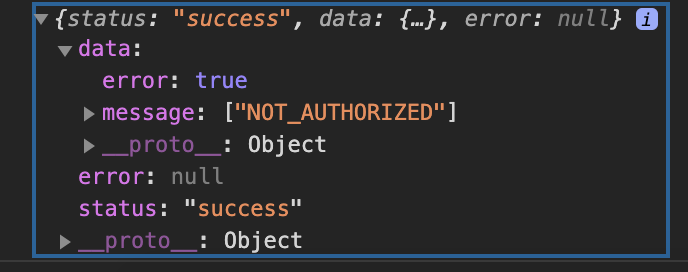I'm having problems using react-query. Whenever the response from the server is Unauthorized, useQuery is returning flags status='success' and isError=false. The server response status is 401 and the content of the json response is { error: true, message: 'UNAUTHORIZED' }. I didn't customize react-query in any way.
I'm not using the ReactQueryConfigProvider, or passing any options in the call to customize the behaviour.
This is the call:
const { status, data, error } = useQuery(
["hotelsList", { token: token }],
getHotels
);
And this is the service:
const getHotels = async ({ token }) => {
const uri = process.env.REACT_APP_API_ENDPOINT_v2 + `/hotels`
return (await fetch(uri, {
method: "get",
headers: {
Authorization: "Bearer " + token,
"Content-Type": "application/json"
}
})).json()
}
Being the token invalid, the server is responding with an 401 status code and my custom json response.
This is the data and error objects from react-query.


